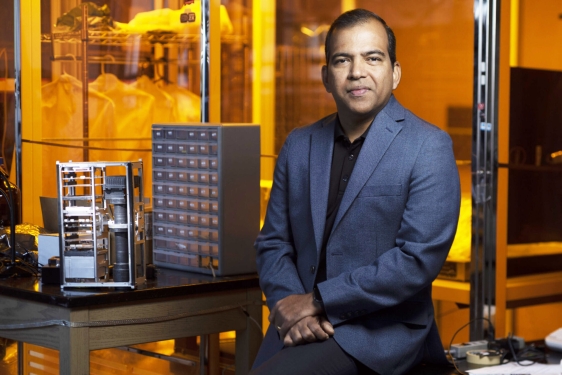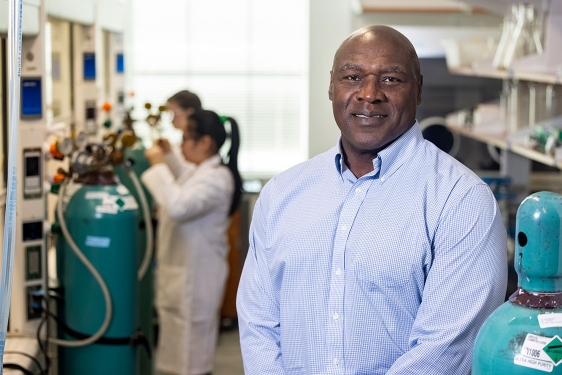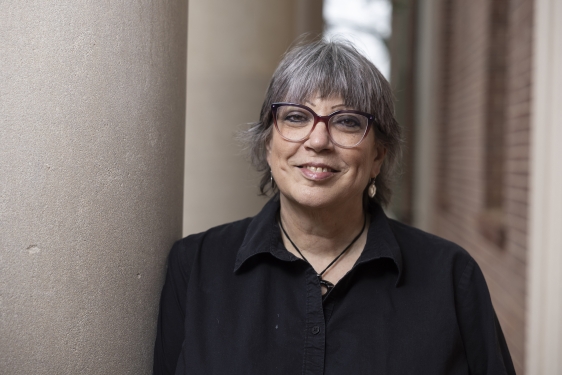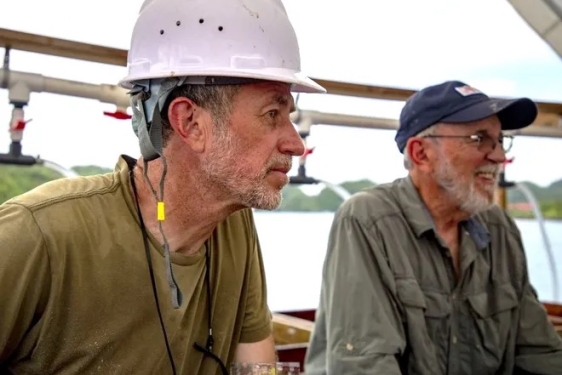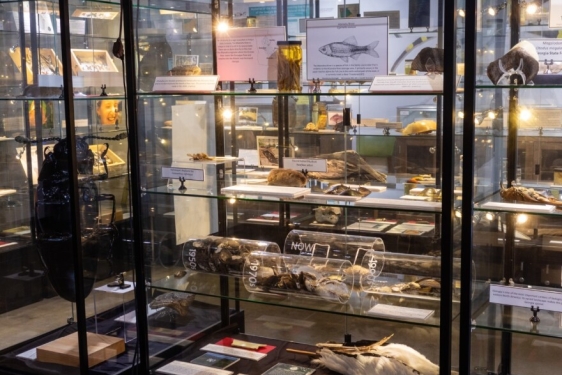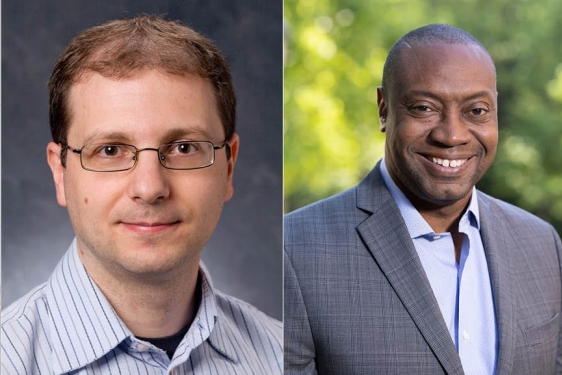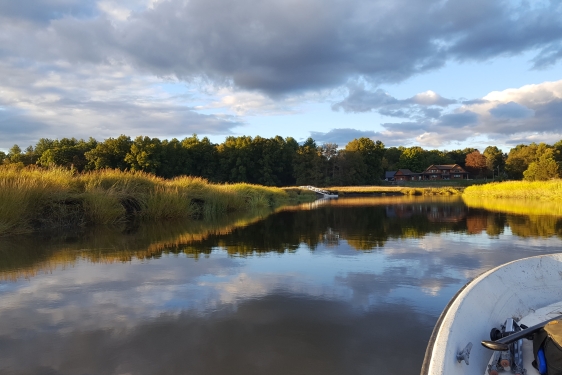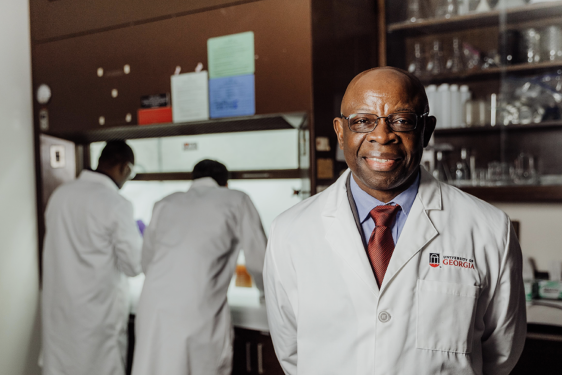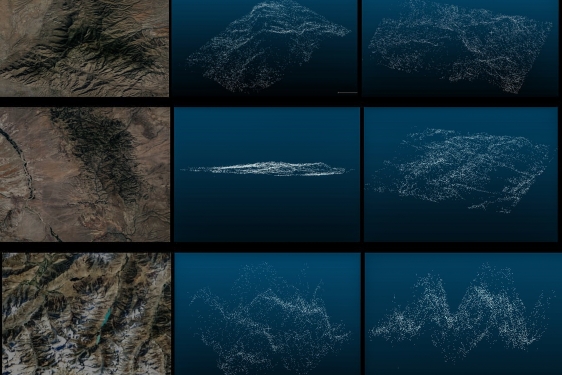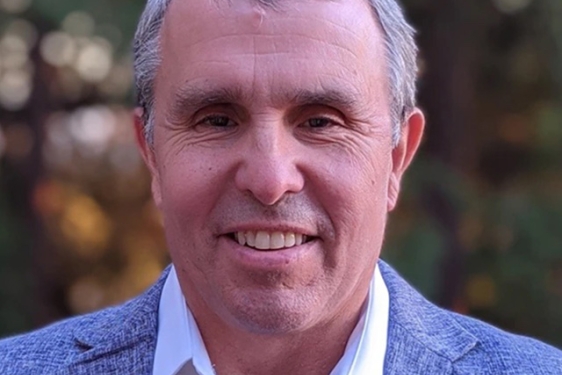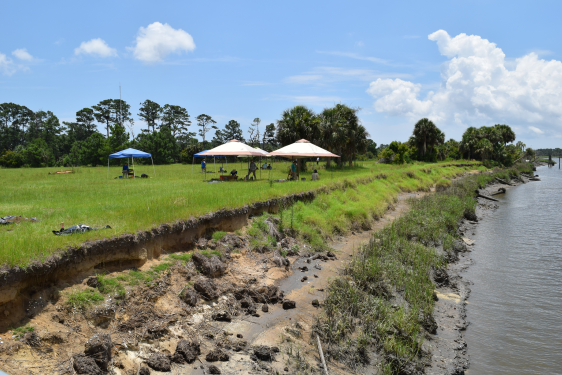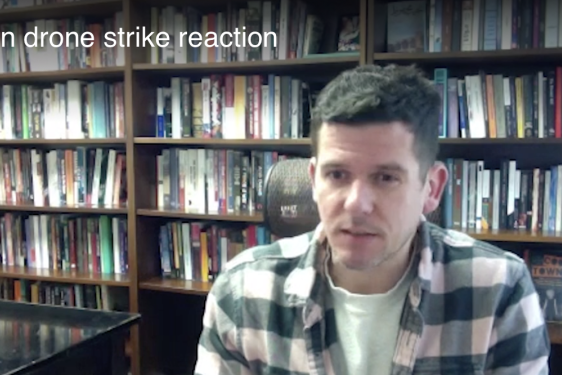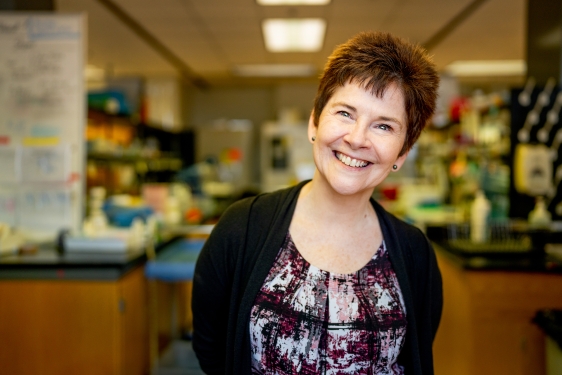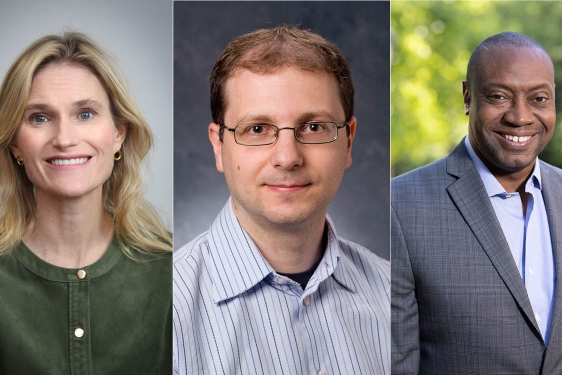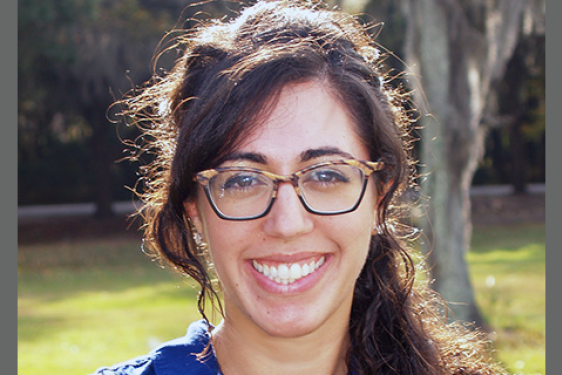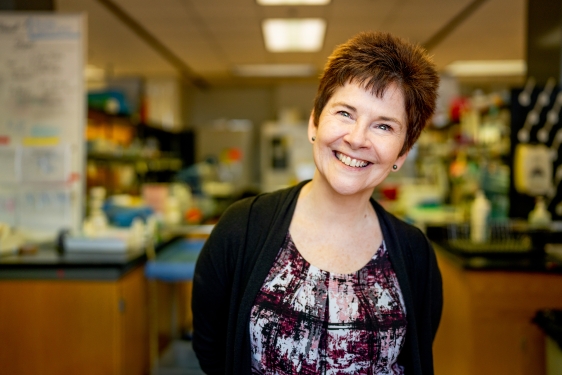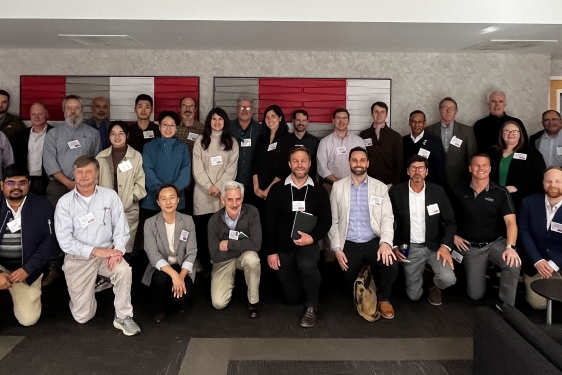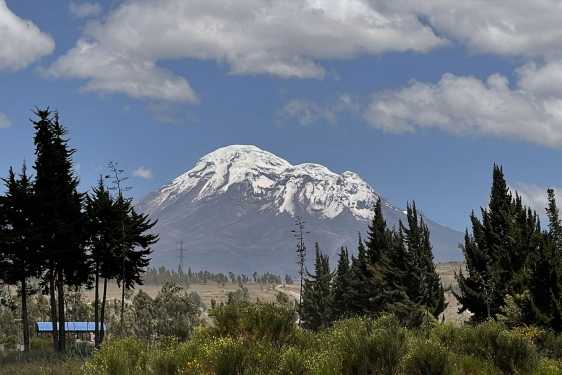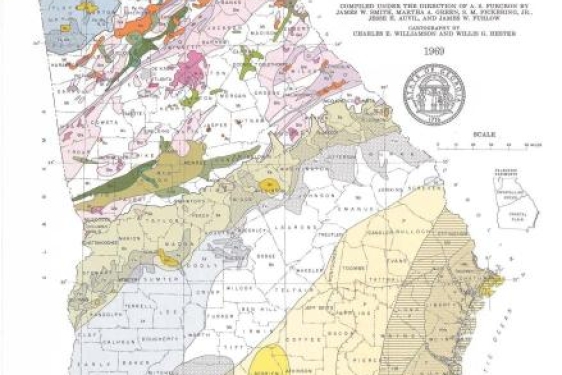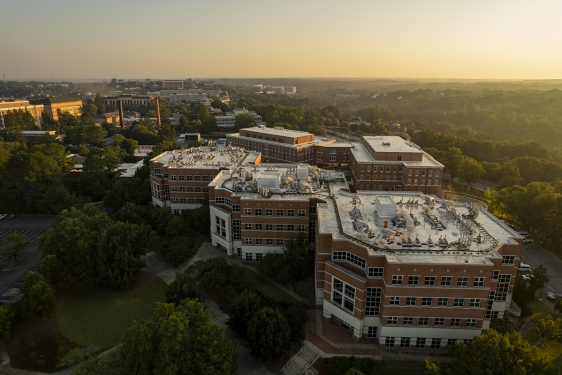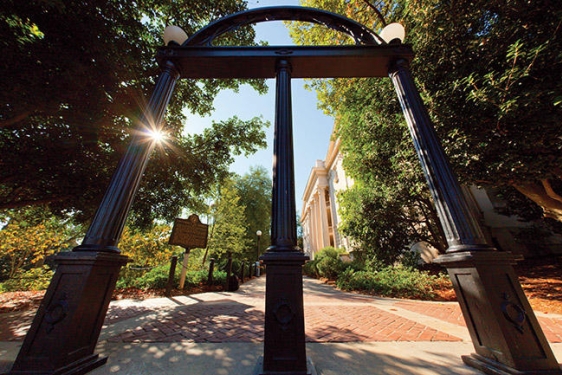Tags: Earth
Georgia Magazine highlights the next launch of MOCI: Multi-view On-board Computational Imager, the second satellite planned for orbit from the university’s Small Satellite Research Laboratory.
MOCI (pronounced mo-chee) will not only capture images but check and process those images, extracting data and deleting images that aren’t needed:
The satellite also will use feature detection and matching software to process them and send data back to the…
Dean of the Franklin College Anna Stenport and Hairy Dawg invite YOU to help support our students and programs on Dawg Day of Giving 2024.
Give TODAY!
Gregory Robinson, the Foundation Distinguished Professor of Chemistry, leads research efforts that have made enormous impact in chemistry and discoveries in sustainable energy, from exploring metalloaromaticity to the first example of a boron-boron double bond in a molecule. A chemistry department faculty member since 1995, Robinson has received many of the most prestigious awards for scientific ac hievement, including the Southern Chemist Award…
Excellence in Teaching Awards, Meigs Professorships and our newest Regents' Entrepreneur lead the March kudos. Congratulations to our colleagues, alumni and students on these outstanding accomplishments:
The University System of Georgia Board of Regents approved Valentine Nzengung as Regents’ Entrepreneur. Nzengung, professor of environmental geochemistry in the department of geology and founder of MuniRem Environmental, LLC, is the third…
Our March survey of media mentions and appearances by Franklin College faculty begins with the local coverage of professor and head of the department of history Stephen Mihm's journey to the South Pacific on a mission to search the ocean depths for soldiers who disappeared in a fierce battle of World War II. Mihm chronicled the search in the March issue of Smithsonian, in an article which also highlights the work of Franklin alumnus Dr. Patrick…
University of Georgia professor Victor Thompson has been appointed the Executive Director of the Georgia Museum of Natural History (GMNH), effective August 1, 2024. Thompson is a Distinguished Research Professor in the Franklin College of Arts and Sciences department of anthropology and the current Director of the Laboratory of Archaeology.
The home of more than a dozen distinct collections, facilitating research for professionals,…
The newest round of 10 Presidential Interdisciplinary Seed Grant Program awards chosen from 70 proposals reflect a commitment of $1 million from UGA President Jere W. Morehead. In a follow-up to the success of UGA research teams to pursue work initiated through the seed grant program, the Franklin College of Arts and Sciences announced additional support for the Presidential Seed Grant projects.
Franklin College Dean Anna Stenport announced…
The Simons Foundation has awarded $8.4 million to support collaborative research in coastal tidal marshes, via a cluster of seven linked project awards through its Life Sciences division.
The project, “Ecosystem on the Edge: How Coastal Marsh Plants and Microbes Thrive in an Oscillating Environment,” is led by Zoe Cardon at the Marine Biological Laboratory (MBL) in collaboration with Jennifer Bowen (Northeastern University), Inke Forbrich (…
In recognition of his success in developing the tools and expertise to counteract some of the most environmentally toxic byproducts of military materiel, the University System of Georgia Board of Regents approved Valentine Nzengung as Regents’ Entrepreneur at its Feb. 13 meeting. Nzengung is the third UGA faculty member to receive this honor.
The distinction recognizes innovative faculty members who have demonstrated success in translating…
Faculty from the department of geography, School of Computing, and the College of Engineering are collaborating on a group of DoD-funded projects focused on optimizing geospatial artificial intelligence.
The capability to deploy GeoAI for real-time usage will enable first-responders to react rapidly to changes in terrain around the world resulting from climate change and natural disasters. The campus-wide research effort, which includes faculty…
2014 Nobel laureate in Chemistry Eric Betzig will visit the University of Georgia on March 25, 2024. Betzig, Professor of Molecular and Cell biology and Eugene D. Commins Presidential Chair in Experimental Physics at the University of California, Berkeley, will give two public presentations hosted by departments in the Franklin College of Arts and Sciences.
Betzig, also a Senior Fellow at the Janelia Research Campus, and an Investigator of the…
A new study published February 28, 2024 in the open-access journal PLOS ONE by Matthew D. Howland of Wichita State University and Victor D. Thompson of the University of Georgia reports that thousands of historic and archaeological sites in Georgia are at risk from tropical storm surges, a number that will increase with climate change.
Due to rising sea level and increasingly severe tropical storms, human-caused climate change poses a…
From lost aviators of World War II to category-6 hurricanes and the vanishing Southern accent, scholarship and expetise of Franklin faculty was courted, quoted, featured and relied upon widely in media across the world.
A few examples, plus some well-publicized profiles and awards, from the month of February:
Jordan drone strike has many waiting and wondering on government response – Kevin Jones, associate professor of history, quoted and…
The parade of excellence also known as the Franklin College faculty was on full display during the month of February. National awards of professional distinction and achievement bring honor and pride to the University of Georgia and congratulations from friends, colleagues, students, and alumni. A round up the of the recent announcements:
Michelle Momany, professor in the department of plant biology and the Fungal Biology Group, is one of 65 new…
Devoted to advancing interdisciplinary research across multiple application areas, ten university-wide projects have been awarded Presidential Interdisciplinary Seed Grants as part of the 2023 cohort. The Franklin College congratulates faculty involved in the the program's two tracks:
For the first time, this year’s program has two tracks: New Frontiers and Cluster Engagement. The New Frontiers track is intended to support early-stage…
UGA faculty member Natalie Cohen has been awarded a prestigious Alfred P. Sloan Fellowship to support her research for the next two years, the Sloan Foundation announced on Feb. 20.
Cohen, assistant professor in the Franklin College of Arts and Sciences department of marine sciences will receive $75,000 from her fellowship over the next two years. One of 126 Sloan Fellows nationwide for 2024, Cohen is the 14th Sloan recipients from UGA…
University of Georgia faculty member Michelle Momany is one of 65 new fellows elected to the American Academy of Microbiology, Class of 2024. Fellows of the American Academy of Microbiology, the honorific leadership group within the American Society for Microbiology, are elected annually through a highly selective, peer-review process, based on their records of scientific achievement and original contributions that have advanced…
UGA, Georgia Tech, Georgia State University and the Georgia Mining Association kicked off February with the first of what promises to be a long-standing workshop to develop essential, critical mineral resources in Georgia. The Georgia Essential Minerals (GEMs) workshop at UGA featured geology faculty experts and stakeholders from across government and industry:
Demand for critical minerals and rare earth elements is rapidly increasing as the…
Geography faculty members have written and published extensively on the mountain ecology of the Ecuadorian Andes. Our colleagues in the Office of Research share a slideshow from their work investigating changes in freshwater availability and agricultural sustainability due to climate change, with important cultural and economic implications for the region:
In September 2023, researchers from the University of Georgia Franklin College of Arts and…
The University of Georgia, together with Georgia Tech, Georgia State University, and the Georgia Mining Association, will host the inaugural workshop for partnerships to develop essential critical minerals on Thursday February 1, 2024, at the Georgia Center Hotel and Conference Center. The event brings together 45 participants from government, industry, and academia to discuss opportunities around critical mineral supplies in Georgia and in the…
Franklin faculty experts welcomed the New Year with advice, experience, perspective, and new research reported in media around the world. Take a journey with our well-versed and generous colleagues in a sample of January's noted and quoted:
Next-gen Starlink dish offers more consistent higher speeds, say early users (John Gibbs) – PC Magazine
The changing perceptions of what leadership means to people – Brian Hoffman, professor of psychology,…
Much like the five element families of the Periodic Table, the Franklin College is also comprised of five divisions that characterize the properties, behavior, and reactions among and between the many academic disciplines that drive innovation and creativity at the University of Georgia. We continue to welcome 2024 by highlighting the divisional nature of our organizational structure and the academic units contained in each division.
Today…
Like the heart has four chambers, the Franklin College as the heart of UGA consists of five divisions. We want to begin the new year by highlighting this element of our organizational structure and the academic units contained in each division.
We begin today with the division of BIOLOGICAL SCIENCES!
Spanning the broad field of natural sciences concerned with the study of life and living organisms, the Division of Biological Sciences…
Happy New Year from the Franklin College of Arts and Sciences! Wishing you all the best as we begin another great year at the academic heart of the University of Georgia.
Excelsior!
The Class of 2023 rolls on – into caps and gowns, toward next steps, new goals, and a bright future glimmering with a fresh degree. Today's the day! Celebrate graduates!
The University of Georgia welcomes its newest alumni on Dec. 15 as 1,626 undergraduates and 1,340 graduate students—a total of 2,966—have met requirements to participate in the university’s fall Commencement ceremonies:
The undergraduate ceremony is scheduled for 10 a.m. in…

